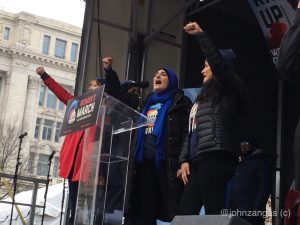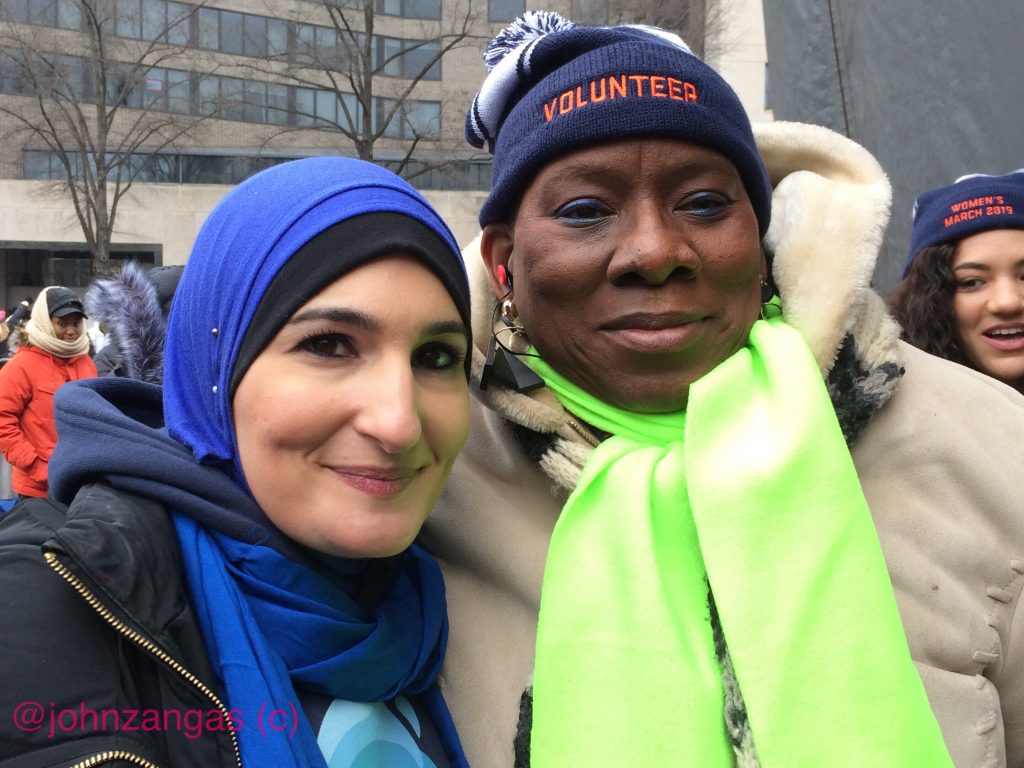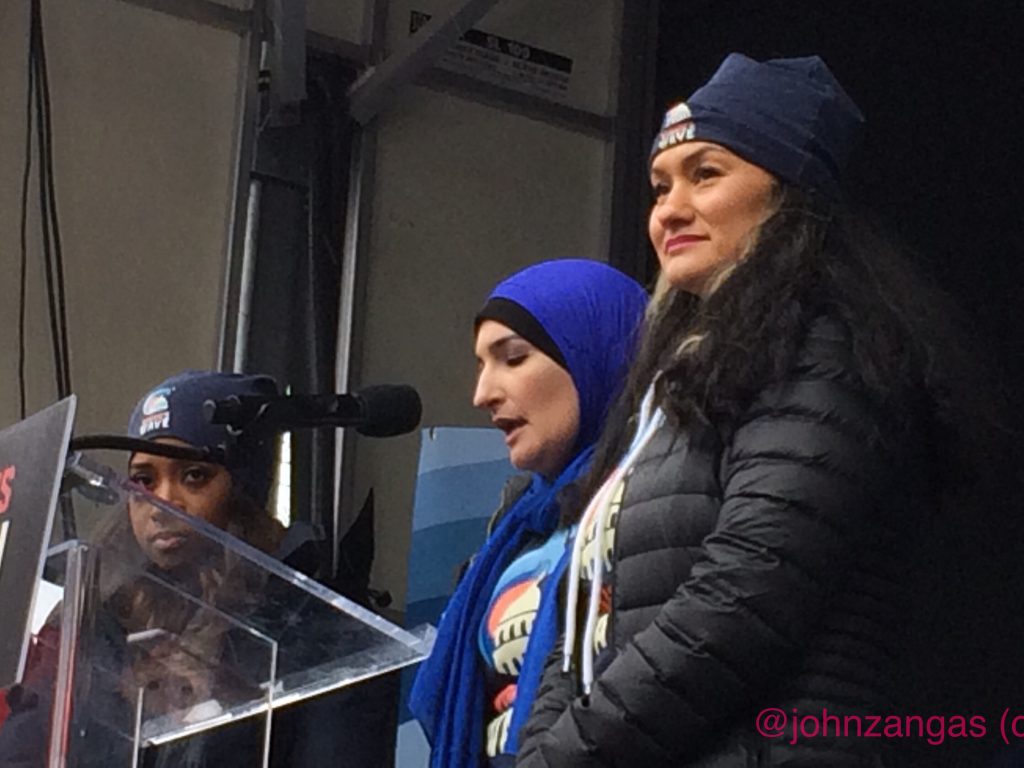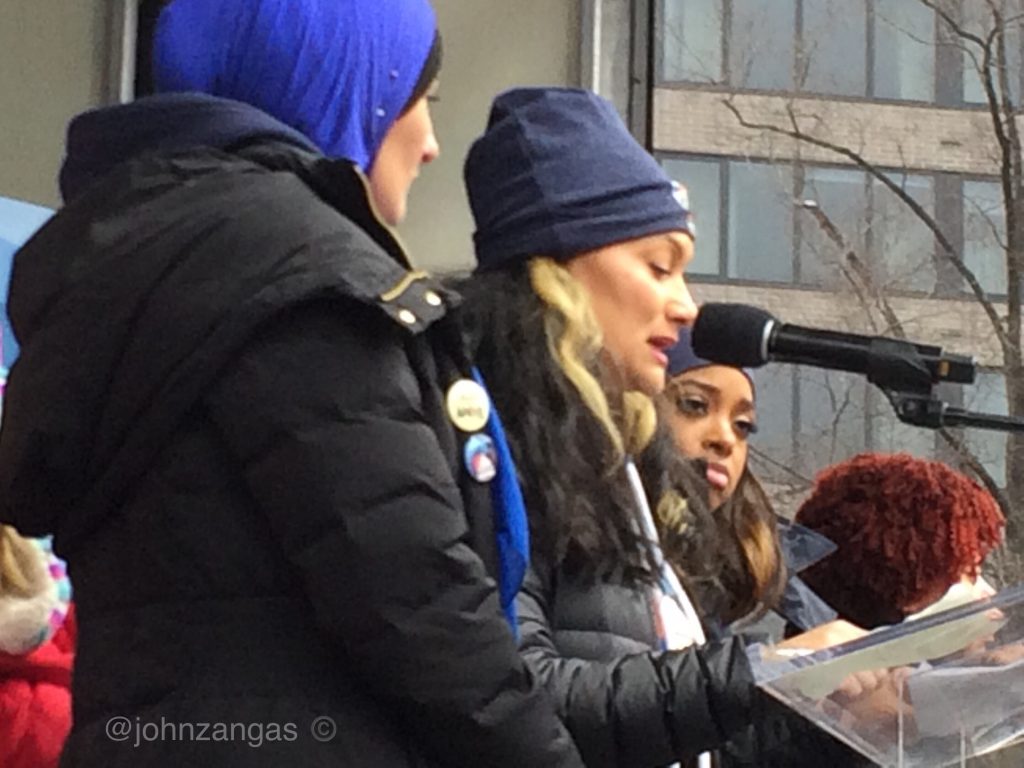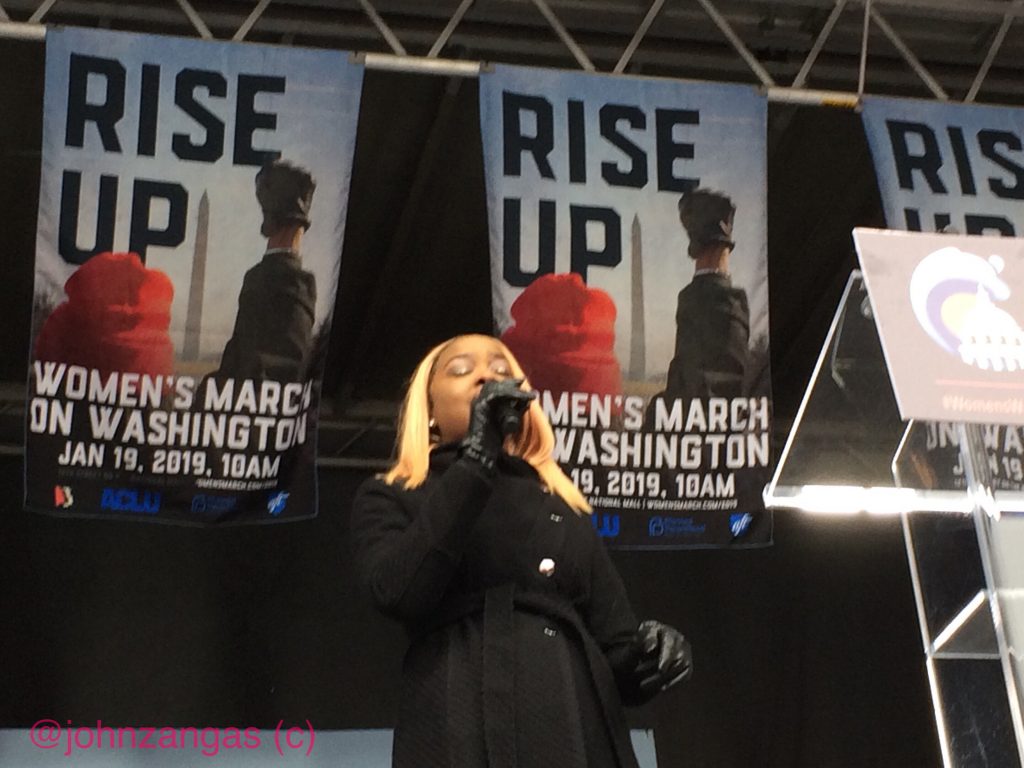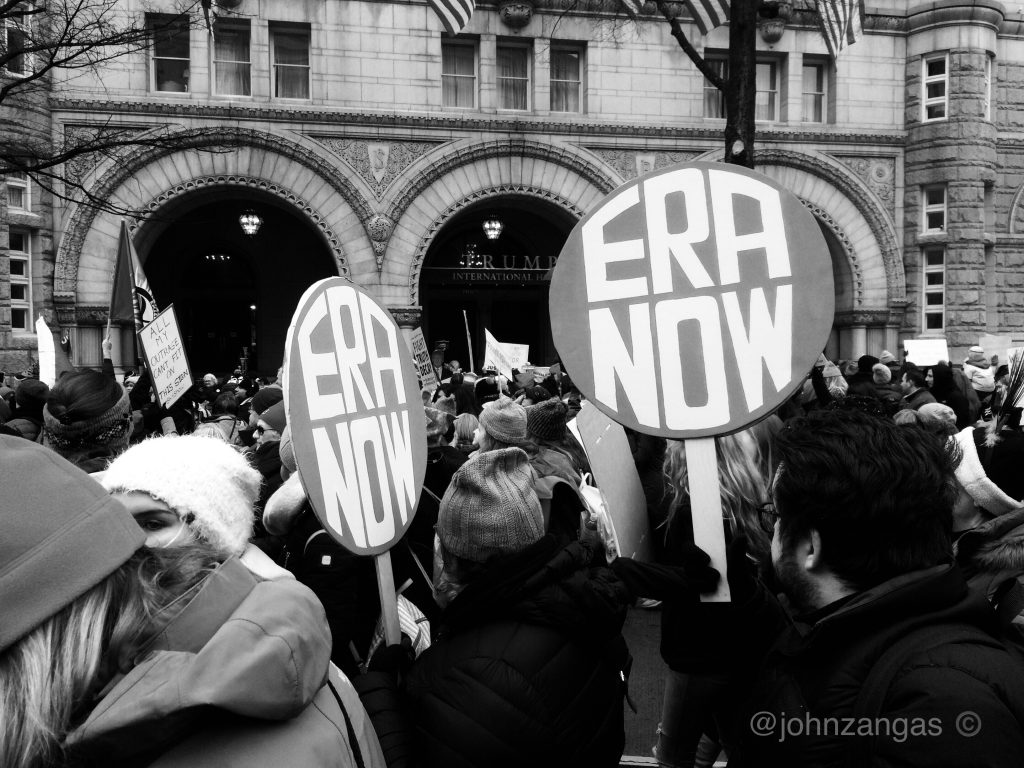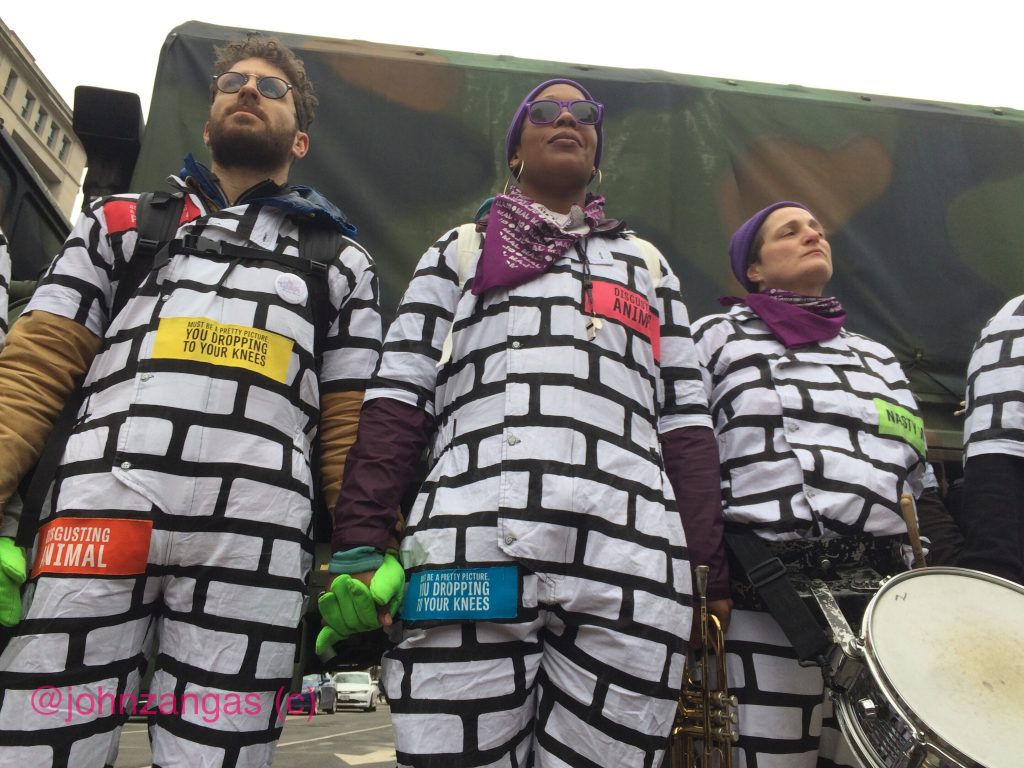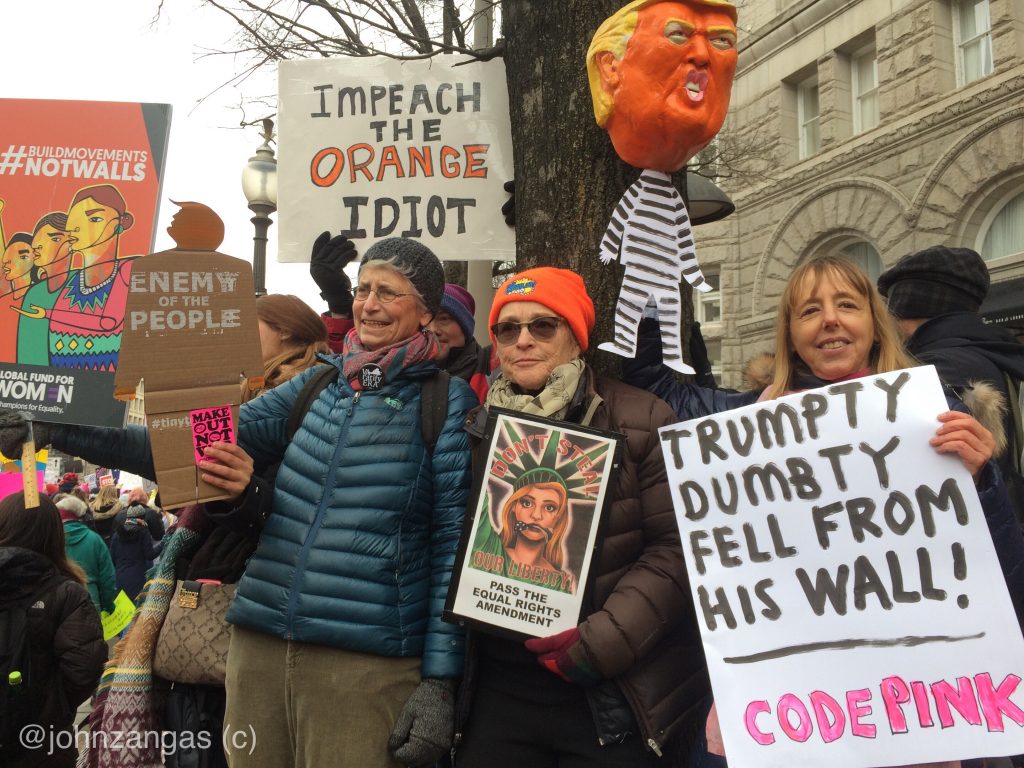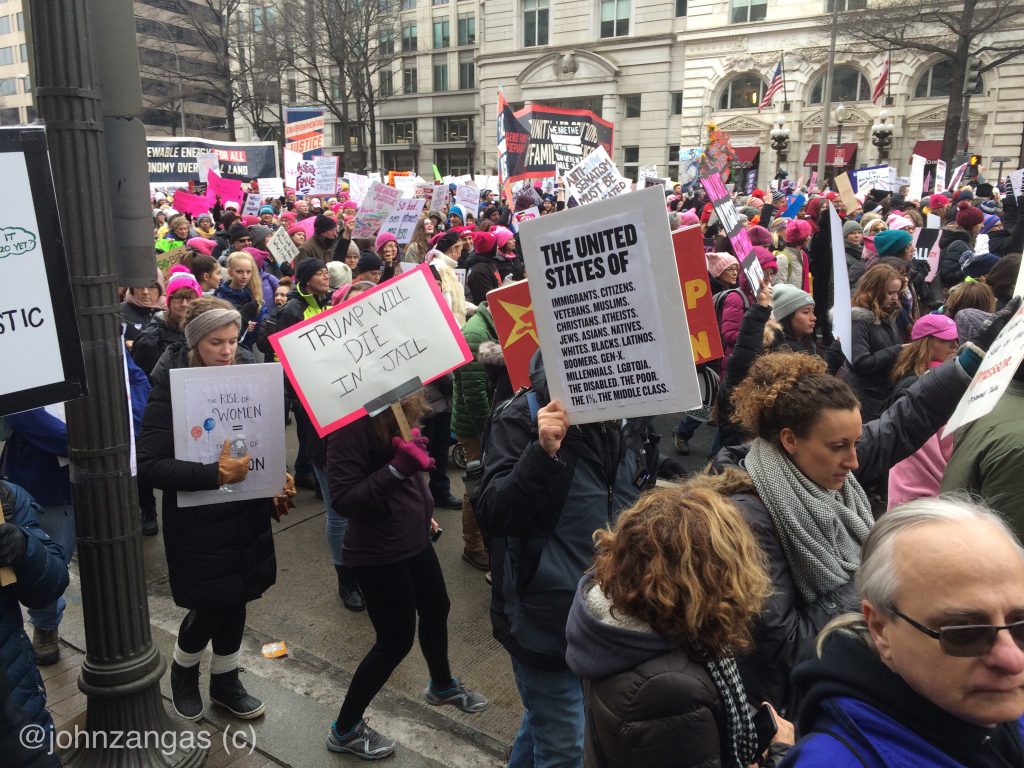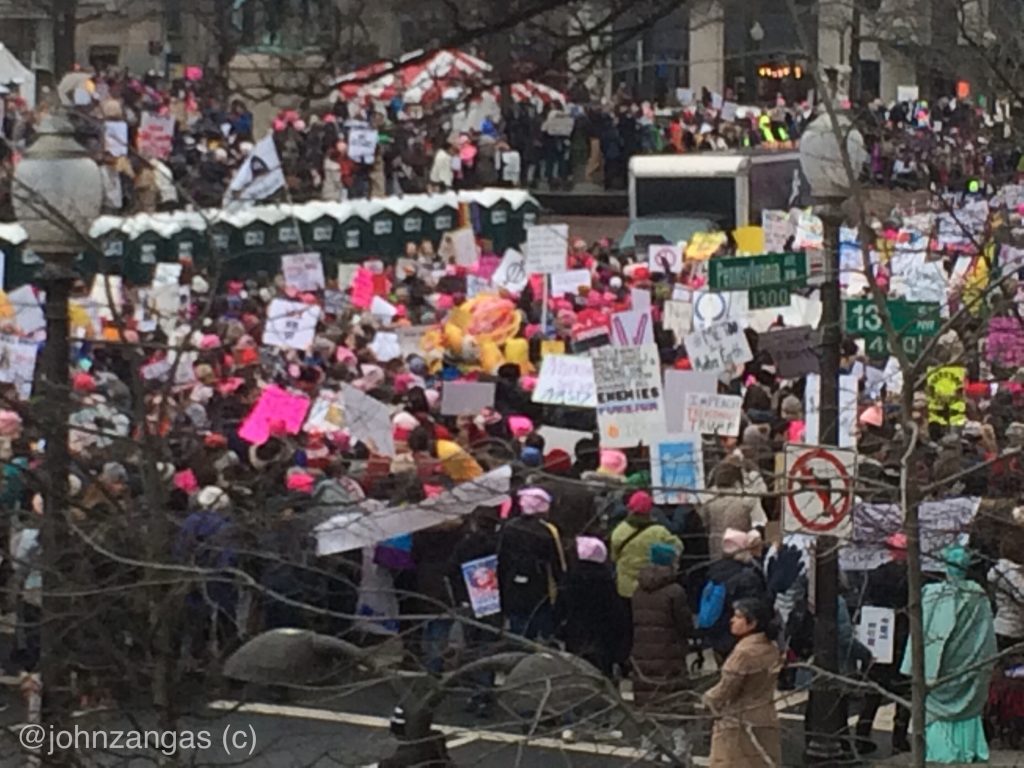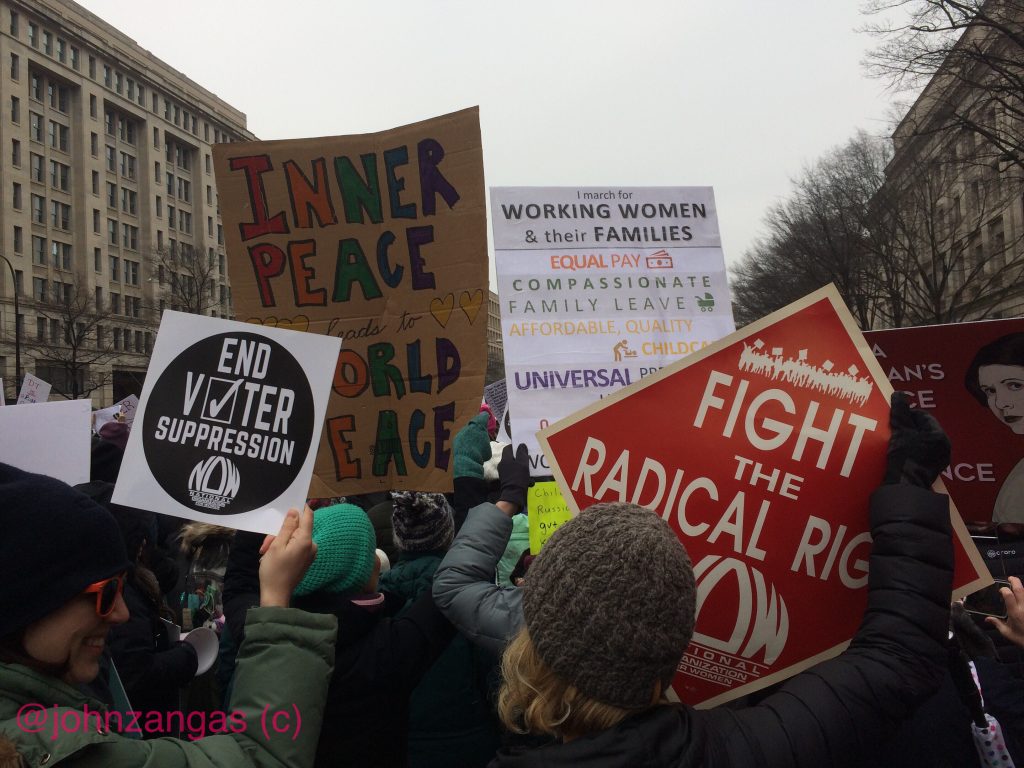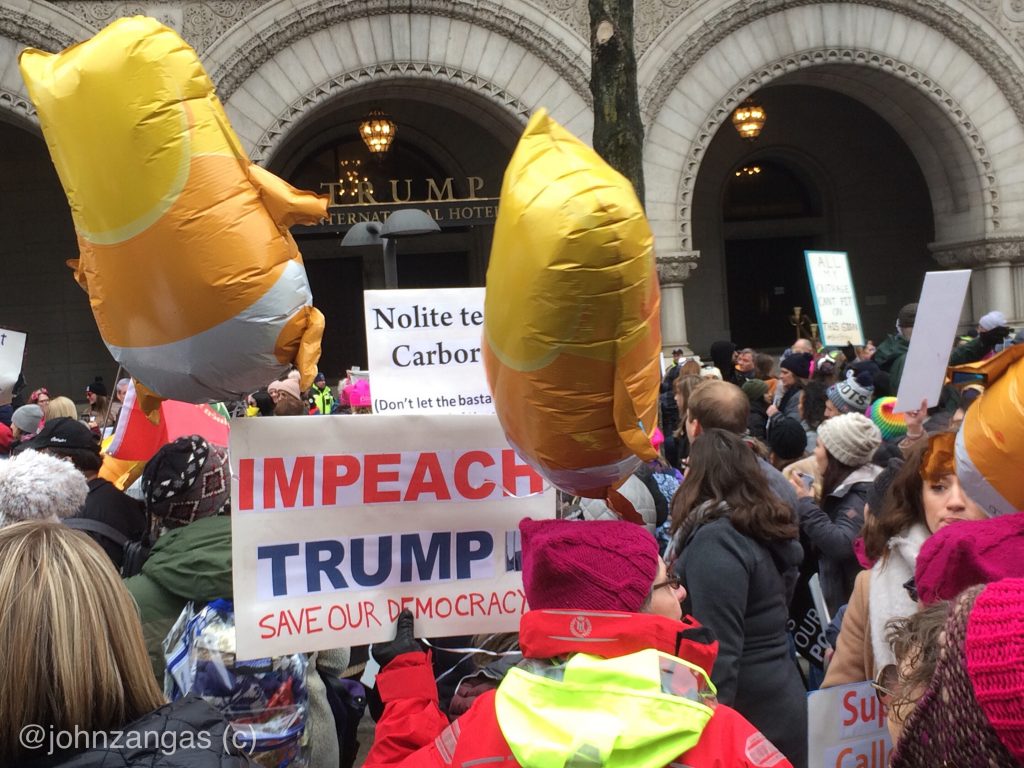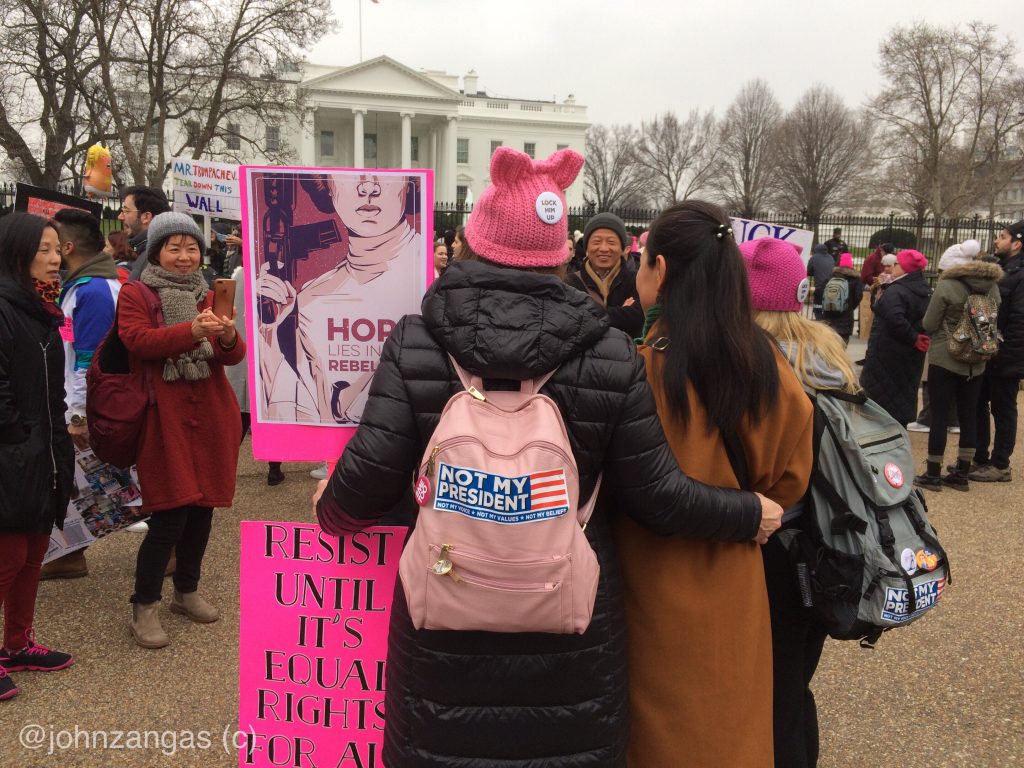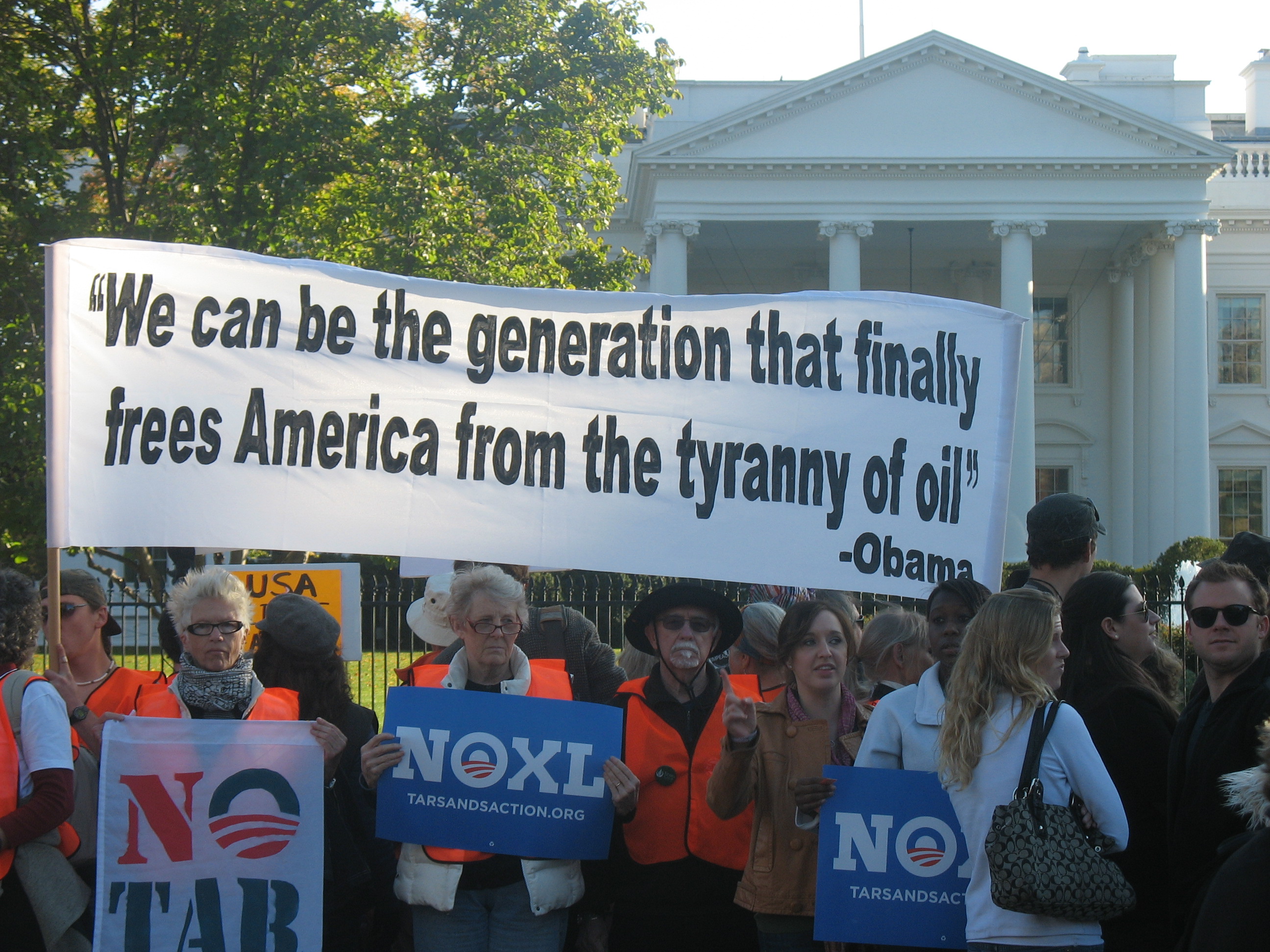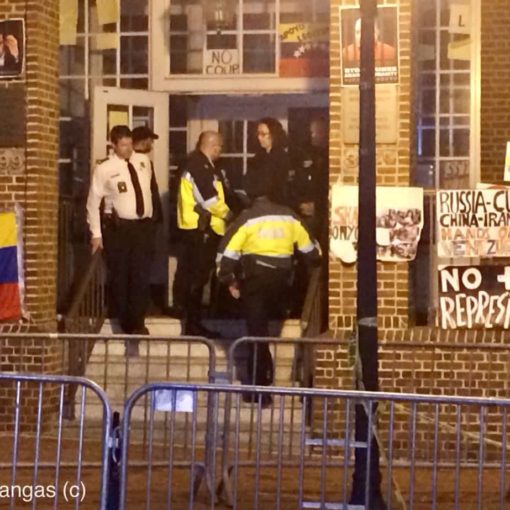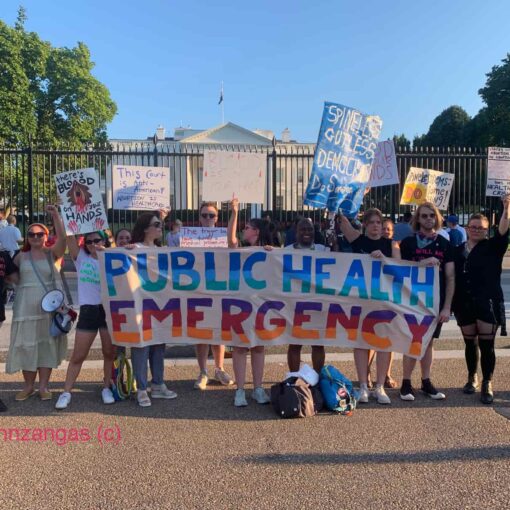Washington, DC — The founders of the historic Women’s March stood together on stage in Freedom Plaza on January 19 urging the nation to embrace diversity, equality, and intersectionality for women everywhere. The march was part of a 300-city “Woman’s Wave” involving hundreds of thousands of women, femmes and allies across dozens of nations.
Co-founders Tamika Mallory, Linda Sarsour and Carmen Perez jointly outlined the successes the Women’s March movement in the two years since its debut in the Capital on January 21, 2017. On that day, the founders committed themselves to building a new woman-centered society of equality, economic parity and respect for women from the classrooms to the boardrooms and into the offices of government. And they reported their successes while warning the real work was ahead.
They outlined the goals they achieved: the tidal wave of elected women in Congress and state legislatures, the spread of their message into the mainstream, and inspired a new generation of grassroots activism. But they also warned they were fighting the headwind of an administration locked in a mode of division and oppression, not diversity and empowerment.
They admonished the current administration for its role in creating space for bigotry, misogyny and racism and for unraveling hard-won achievements gained during decades of the civil rights era. They hailed allies and supporters to get out and engage the issues facing women, stating their role was imperative. These challenges would need everyone to commit to building a new society of equality, they said.
Carmen Perez laid out a “blueprint for action in 2019 and beyond” for the Women’s March. “The next step in the evolution of our revolution is the Women’s Agenda,” she said. The “Women’s Agenda will give clear marching orders to every grassroots activist in this nation and establish a solid platform which truly progressive candidates could run and win in 2020,” said Perez.
Tamika Mallory told of her family’s struggle in Harlem during the 1980s for basic necessities when she was a child. She spoke of how her past experiences were being mirrored by young black women today, and she realized she could contribute to a movement to help children going through hardships her family suffered. “I joined this movement because I believe that for the first time there is real possibility to protect young girls who look like me,” she said.
Mallory built on Sojourner Truth’s foundational speech “Ain’t I a woman?” by asking, “Intersectionality for who?” to reason that achieving equality was tied to all people. She outlined several recent prominent stories to demonstrate her point, including the unjust death of 7-year-old Jakelin Caal, a Guatemalan refugee who succumbed to dehydration several days after she was taken into custody and separated from her father at a New Mexico detention facility.
Mallory castigated reports in the mainstream press in regard to alleged antisemitic comments made by Women’s March leaders. “They asked me, ‘What are you gonna do? How are you going to handle this situation?’ I came to do a job with my sisters, and we will complete the job, and no one will be discarded from this movement,” she said. Mallory has consistently denied the media claims she is antisemitic.
Mallory spoke of the unity of the movement and its energy, calling to those present, “We will stand together. We will love one another. We will protect one another. We have nothing to lose but our chains.”
Co-founder Linda Sarsour also spoke. “We come to this movement not because we choose to come here. It is because we have to be here.” Sarsour outlined how communities and families were under attack by administration policies.
Sarsour cast off controversial comments about the co-founders she said were aimed to distract from the progress and effervescent energy of the Woman’s March. “The media can talk about whatever controversy they want, but the real controversy is in the White House,” she said. She listed administration policies caging children, firing tear-gas at refugees at the border, rolling back rights of the LGBTQ community, while supporting Saudi Arabia in the Yemen War. These are the “real controversies” deserving attention, she said.
She also outlined the advances of the Women’s March movement made by electing women to Congress in numbers never seen in one election. She told of the bold feminist agenda the Women’s Movement, saying “now we have work to do” for a new era with women at the front.
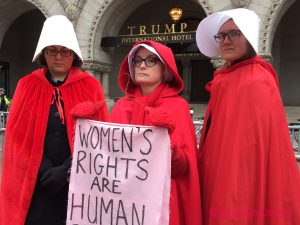
Medea Benjamin, co-founder of CODEPINK! Women For Peace, said that the country had arrived at a historic turning point where a revolution was already underway but was surprised there was not more militancy, given that the government had been shut down for over four weeks and people at home and internationally did not trust the administration. “People need to be taking over government buildings, they need to be going on strike, they need to be shutting down the different agencies of government, the need to be flooding Congress and taking over their offices,” she said.
Benjamin said that she never thought things could get this bad after the President was elected but thought things could get worse without action being taken. “Here we are with the government shut down, people camped out on our border and being abused with their families ripped apart,” she said. She said people were wondering why things were falling apart so much and argued the Women’s March was a manifestation of what people were feeling about the administration.
After speeches at Freedom Plaza, tens of thousands marched on a circuit past Trump International Hotel where lines of police blocked access to the edifice. Many lingered, expressing anger and chanting slogans. Others peeled off and left their signs at the gates of the White House as they had done the previous two years.


